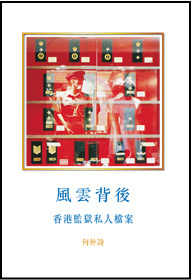昨夜睡前給老師送了一個電郵,報告已辦妥註冊手續,感激一番,電郵是0007發出,老師是0041回覆,老師確實比學生用功。
老師勉勵之餘,還告訴我最近和一位學者提及我的研究題目,他最近出版了專書研究非、亞和拉美監獄歷史,我竟對人和書都一無所知,確有點汗顏,在網上搜了一會,找到他給歷史研究生出的試題,又是一把冷汗,本來以為看完了梁啟超的中國近三百年學術史也算乖,看完這些題目,卻是乖乖不得了,實在要加大把勁。
繼續搜尋,他們這本書的研究經費是£195K,我卻只得緊守“手空空、無一物”的新亞精神。
Research Methods in History
Time Allowed: THREE HOURS
(1) What steps should a historian take in the critical evaluation of archival sources?
(2) 'The facts of history cannot be purely objective, since they become facts of history only by virtue of the significance attached to them by the historian' (E.H. Carr). Discuss.
(3) History is a 'parade of signifiers masquerading as a collection of facts' (Roland Barthes). Discuss.
(4) 'The best theories owe their appeal to the fact that they acknowledge and seek to elucidate the reciprocal relationship of action and structure'. Discuss.
(5) How useful is Said's concept of Orientalism to historical research on Asia or Africa?
(6) How useful is gender as an analytical category in historical research?
(7) 'The study of history is a personal matter, in which the activity is generally more valuable than the result' (V.H. Galbraith). Discuss.
(8) Discuss the problems involved in the study of 'history from below'.
(9) 'The bounty of the past provides individual instances aplenty to support virtually any general proposition. It is only too easy to beat history over the head with the blunt instrument of a hypothesis and leave an impression.' Discuss.
(10) What particular problems can arise from a heavy dependence upon the use of oral sources?
2007/06/29
訂閱:
發佈留言 (Atom)







沒有留言:
發佈留言